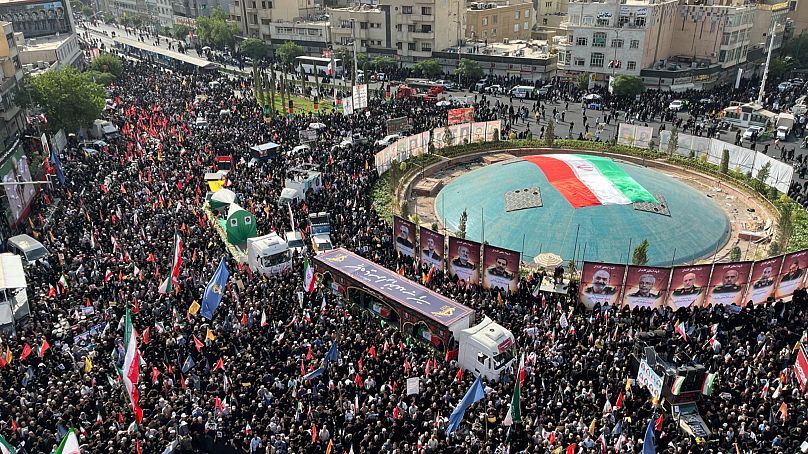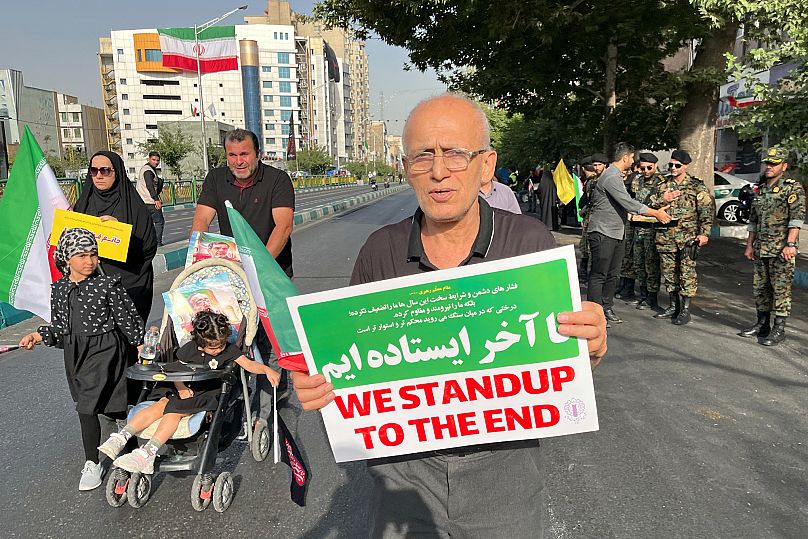Hundreds of thousands attended a mass funeral in Tehran for IRGC Chief General Hossein Salami and other top commanders killed in the conflict with Israel.
Hundreds of thousands of people attended a mass state funeral in Tehran on Saturday for the head of the Islamic Revolutionary Guard Corps (IRGC) and other top military commanders, as well as nuclear scientists killed during the latest 12-day conflict with Israel.
 ADVERTISEMENT
ADVERTISEMENT
 ADVERTISEMENT
ADVERTISEMENT
The caskets of IRGC's Chief General Hossein Salami, General Amir Ali Hajizadeh and others were driven through the city's Azadi Street. Coffins were draped in the Iranian flag with large portraits of those killed attached.
Both Salami and Hajizadeh were killed on the first day of the conflict on 13 June, when Israel launched a war it claimed was intended to destroy Iran's nuclear programme.
State media reported that the state funerals were for 60 people, including four women and four children, and that more than 1 million people turned out for the procession, though the latter cannot be independently verified.
The funeral procession did have a large turnout, which saw mourners line the street waving flags as they chanted "Death to America" and "Death to Israel".
Iran's Ayatollah Ali Khamenei was not present at the funeral. Iran's Foreign Minister, Abbas Araghchi, was present, alongside other high-profile Iranian military leaders.
The IRGC was established after the 1979 Islamic Revolution, which led to the overthrow of Shah Mohammad Reza Pahlavi, the country's last monarch.
First established as a domestic security force, the IRGC has now evolved into a transnational actor aiding Tehran's allies in the Middle East and has control over the country's arsenal of ballistic missiles.
The Israel-Iran conflict began on 13 June, when Israeli airstrikes began targeting nuclear and military sites in Iran. Tensions soared when the US got involved last week when it bombed three key nuclear sites. A US-brokered ceasefire was then declared on Tuesday.
Iran has always insisted its nuclear programme is for peaceful and civilian purposes only. However, Israel views it as a threat and claims its military campaign was necessary to prevent Iran from building a nuclear bomb.












